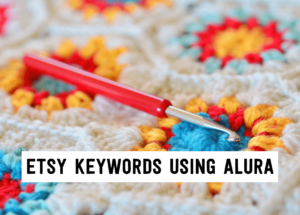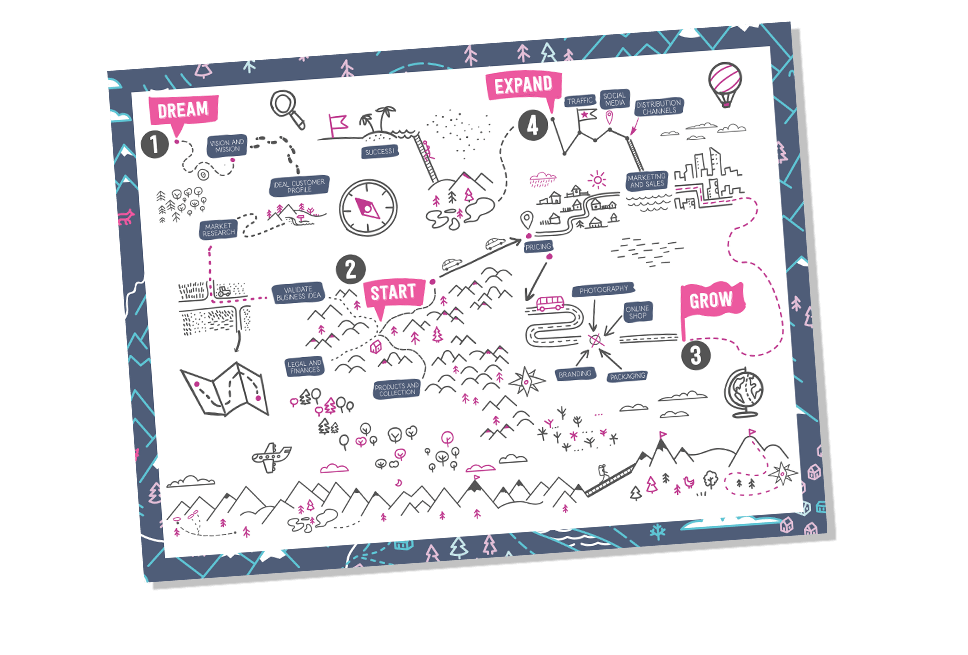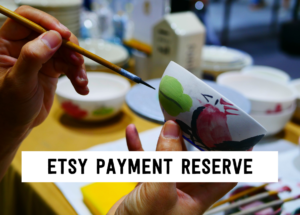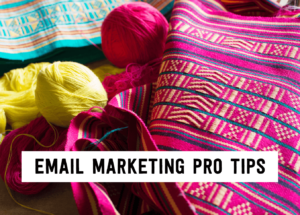
How to find the best Etsy keywords in 3 simple steps using Alura
If you want to be found in search results on Etsy, you need to optimize your product listing for SEO. And if you want to
join
join
Starting a business and setting up your shop can feel confusing, lonely, and can quickly become slightly overwhelming. For some, a business plan is the solution to all these problems.
I have to agree that, on paper, it does sound pretty good. But I am here to warn you: a business plan is not always what you should worry about when you’re ready to embark on the entrepreneurial journey.
But you do need some sort of plan, right? Something to look back at that will help you sail the boat in the right direction.
So why is a business plan the last thing you need and what can you do instead to set up your shop for success? Let’s dive in and have a look!
Back in my corporate days, I worked on more business plans that I’d dare to admit, and let me be brutally honest: they all ended up in a drawer, never to be used again. So, why I don’t recommend and what to do instead?
A business plan assumes that you know things that you don’t know yet – and that no one should expect you to know yet! There is no way you’re going to know what will happen in your business in 5 or 10 years.
There’s also no room for experimentation. Business plans have a very ”set in stone” tone, when in reality starting a business is more about making the best possible hypothesis (on your product, your prices, your audience), getting out there and testing it out, and then re-assessing and changing direction if needed.
No one should seriously ask you to write a 2-to-5-year projection plan of your business when you’ve only just started… It’s all trial and error!

DOWNLOAD THE MAKERS ROADMAP!
Business plans are still widely used in formal/corporate settings because it makes sense for them to exist in that setting. They include things like a 3-year loss and profit planning, key personnel that you plan on hiring, and all sorts of things aimed strictly at appealing investors, and creating consensus amongst all directors.
As a solopreneur, this makes no sense at all! Any plan that you have should be customized for your situation and it should work specifically for your business, something that you can use as a roadmap. It has to be written for you, by you, and with your own words. Not in a rigid way, not for a bank, not for a board of directors. Or you’re at risk of leaving it in that drawer for years to come and never looking at it again!
Ok, so where does that leave us? Basically, business plans can be a waste of time. Having said that, no plan at all is a five-star recipe for disaster. So what is a better alternative?
Although business plans can be a bit of a waste of time there is something to be said about planning. That’s why the first thing I want to recommend to you guys is The Right Brain Business Plan by Jennifer Lee*. She’s done an amazing job in turning something that is as boring as a corporate business plan and turning it into something that’s really doable and enjoyable. It’s perfect for creatives, makers and people just like you.
The second thing I want you to know is that if a business plan doesn’t work for you, try creating a workflow. It will allow you to focus on what’s important. Something that:
Some ideas:
Planning a year into your business is too far in advance. Instead, you should reassess your business goals every 3 months. That means a quarterly routine, where every 3 months you sit down and review your progress and what to focus on in the next 3 month period. It’s much more efficient, it lets you be more flexible and adjust if something comes up.
Don’t try to focus on everything at once. Focus on what matters now, not what matters 1, 2 or 3 years from now. Most of us look up marketing strategies and all those kind of stuff on the Internet. It’s amazing that we have access to this kind of information, but it can leave you overwhelmed. You don’t need to do everything. In fact, activities you need to do in order to grow your handmade shop are not the same for everyone.
A good way to avoid the overwhelm is to take a step back and ask yourself: what is important right now? To do so, I like to follow this simple rule: Only do what is required for the stage of business you’re in. Don’t get ahead of yourself and keep it simple: one little but meaningful step at a time. Cut out the rest because it’s just noise and it doesn’t help you right now.
Every business is different, and the path to a profitable and successful shop is different for all. Keeping this in mind, I’ve created a basic roadmap for what to focus on depending on the stage of growth you’re in. You can think of it as a simple alternative to following a business plan.
It’s called The Maker’s Roadmap and it can really help you understand what stage of business you’re in and what to focus on. It’s an entire system made out a printed planner and coaching videos so you’ve got all the aspects of writing in a physical planner but also the flexibility of coaching videos and virtual member’s area online. It can help you build your handmade shop from scratch to full-time income.
If you feel a bit confused, don’t know how to organize yourself and you need help in setting your goals and want me to hold your hand – this is a perfect product for you. The planner is undated, which means that you can start planning whenever you’d like to. You can learn more and get yours FOR FREE here:

DOWNLOAD THE MAKERS ROADMAP!
Links marked with an * are affiliate links and I may receive a commission if you purchase the product. I rarely promote other people’s products and services, but when I do, it’s because I’ve tested it myself and 100% believe it can help you.
you might also like…
related articles

If you want to be found in search results on Etsy, you need to optimize your product listing for SEO. And if you want to

There has been a lot of talk in the Etsy community — and I mean A LOT of talk — about Etsy’s payment account reserve

Anyone who knows me knows that I am a HUGE advocate for using email marketing to grow and scale your handmade business. But you may
disclaimer
subscribe to youtube
THE LAUNCHPAD
get in touch
We acknowledge and give thanks to the Budawang and Yuin people, the Traditional Owners of the land we work and live on. We pay our respects to all Aboriginal and Torres Strait Islander Peoples and elders past, present and emerging.

Get Instant Access to
The Makers Roadmap